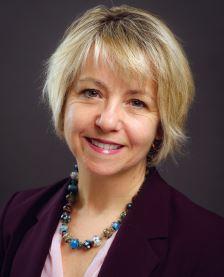
Dr. Bonnie Henry was recently appointed as the new provincial health officer for B.C. on Feb. 1, 2018, following a three-year term as deputy provincial health officer.
Prior to these roles, Henry served as a medical director with the BC Centre for Disease Control, with a wide portfolio including communicable disease prevention and control and public health emergency management.
Before moving to B.C., Henry was an associate medical officer of health with Toronto Public Health and, in 2003, was the operational lead in response to the SARS outbreak in Toronto.
Henry received her medical degree from Dalhousie Medical School and Masters in Public Health from the University of California, San Diego. She has worked internationally with the World Health Organization and UNICEF to eradicate polio in Pakistan and control Ebola in Uganda.
Author of Soap and Water and Common Sense, Henry shares her wealth of medical knowledge as an associate professor at the University of British Columbia’s School of Population and Public Health.
First of all, congratulations on your new role. What do you see as your highest priorities and top things to tackle?
Thank you! I am very honoured to serve in this important role and to continue the work of Dr. Perry Kendall. My highest priority is probably no surprise as we continue to struggle with the overdose crisis that is taking so many lives in B.C. – that is number one. But there are a number of other issues that are upon us as well, including the legalization of cannabis and the ongoing concerns about climate change and the impacts on health. My other priorities include continuing our work to reduce the disparities in health for Indigenous peoples in this province and to further the health of children and youth.
With last year’s overdose death rate at its highest numbers, what role do you see B.C.’s community pharmacists playing in the overdose epidemic?
This crisis continues and I believe there are several key roles for pharmacists, from educating people about naloxone and having it available to advising people about safe use of prescribed opioids. Pharmacists have relationships with many diverse members of their community and can play an important role in starting conversations about substance use and risks.
Support for patients with mental health issues is also critical. How do you see pharmacists playing a role in this?
There is much work to do to develop an integrated system for supporting mental health in B.C. and that work has started with our new Ministry of Mental Health and Addictions. Pharmacists can play an important role in recognizing people who need support and having those conversations to connect them to supports in the community.
In your previous roles, you’ve handled infectious disease outbreaks. Pharmacists have provided more than half a million flu immunizations this past year and are increasing the ability to give vaccines for travel. What do you see on the horizon for the role of pharmacists in managing outbreaks in the future?
Pharmacists have played a key role in influenza immunization for many years now, since the influenza pandemic in 2009. Pharmacist immunizers have also been active in supporting adult immunization in our communities, particularly pneumococcal immunization and zoster, etc. Having more competent immunizers in our communities has already been a welcome addition to our response to outbreaks. A great example is the support to the response to the recent meningitis outbreak in the South Okanagan last December where pharmacists were an integral part of the response that saw over 15,000 teenagers protected from meningitis W with the quadrivalent vaccine.
While recreational cannabis becomes legal later this year, community pharmacists are also advocating for a review of the medicinal cannabis framework. What do you see as the next steps in managing these dual tracks?
I absolutely agree that we need to have more evidence to support the use of medical cannabis and to understand what conditions it works for and what doses are effective. We have been very active in the provincial committee that is developing the standards for how recreational cannabis will be available in B.C. and foremost for me is ensuring we take an approach that minimizes harms by increasing education and reducing availability to youth in particular.
